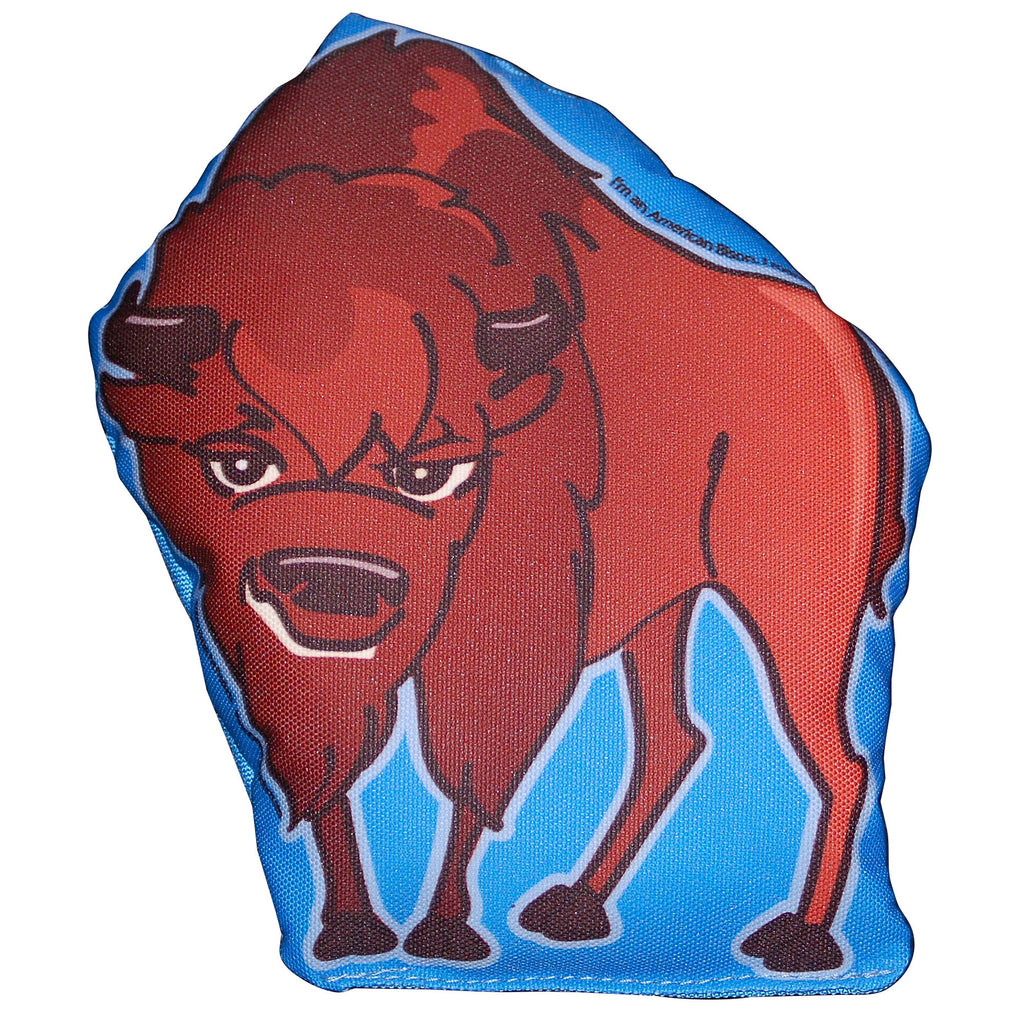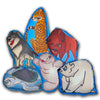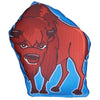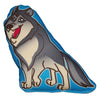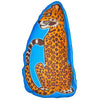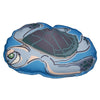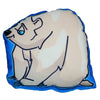JUST ADD DOGS! is a series of dog toys to help endangered and threatened species. The first series is for animals in the United States.
1% of all profits are donated to grass roots groups that are helping to save each of these great animals! What better way to help out! Buy a great toy, just add your dog and let the fun begin!
Each toy is made with really durable fabric, stuffing and a squeaker and each toy is approx 8"H x 6"W! Made in Colorado.
American Bison
The American Bison roams the Northern Rockies. Right now there are just a few, but they are making a comeback thanks to some great breeding programs in the Rocky Mountains. 1% of all profits go straight to http://www.buffalofieldcampaign.org
The American Bison roamed the Great Plains and the Rocky Mountains in the millions. Now they are endangered. The Buffalo Field Campaign and other groups are working hard to maintain and increase the herds of wild Bison that remain in Yellowstone Park and surrounding areas in the Northern Rockies in the United States.
Manatee
Manatees swim in the warm waters of Florida. They are threatened by changing climates, water quality and boating accidents. We are working with http://www.savethemanatee.org to help donate a portion of sales to this group to find ways to save the manatee.
Grey Wolf
The Grey Wolf roams the Northern Rockies, Canada and Alaska. As the ancestor of the domestic dog, the gray wolf resembles Alaskan Malamutes or German Shepherds. That is why we all love wolves! Gray wolves were once common throughout all of North America, but were exterminated in most areas of the United States by the mid 1930s. A huge effort has been made to bring them back from extinction. In 1973 wolves were added to the endangered species list. Despite some controversy, gray wolves were taken off the endangered species list in some states in 2008 and are now hunted for sport.
Wolves play an important role in keeping ecosystems healthy. They help keep large populations of animals like deer and elk in check, which benefits many other plant and animal species. Despite their value to the landscape, humans still threaten wolves across much of the U.S. with extreme intolerance and unsustainable hunting. 1% of all profits go straight Defenders of Wildlife http://www.defenders.org. They support the protection of many animals. They focus heavily on wolves.
Kemp's Ridley Turtle
Kemp's Ridley turtles live in the Gulf of Mexico between Mexico and the Gulf coast of Texas. The Kemp's Ridley turtle is one of the smallest sea turtles in the world. In 1995, there were just a few Kemp's Ridley turtles kept in a small tank at the Cayman island Turtle Farm. At the time, it was possible that these Kemp's Ridleys might soon have been the only ones surviving on the planet. In recent years, the population of Kemp's has slowly started to recover. The biggest threat to the survival of this turtle are shrimp and fishing nets. There are only about 1200 breeding females left. If one dies in a fishing net, it greatly reduces the population. Fortunately it has received protection in Mexico since the 1960s and was listed as endangered by the US Government throughout its range in 1970. 1% of all profits go to Turtle Island Restoration Network http://www.seaturtles.org
Jaguar
The jaguar (Panthera onca) is the largest cat native to North America and the third largest cat in the world. In the U.S.-Mexico borderlands the unique American jaguar has been virtually eliminated from its entire U.S. range, but Defenders and its partners are working hard to save remaining populations in Mexico. 1% of all profits go straight to https://www.northernjaguarproject.org/
Polar Bears
Polar bears live in the Arctic areas where they can hunt seals at openings in the sea ice called leads. They are found in Canada (home to roughly 60% of the world's polar bears), the U.S. (Alaska), Greenland, Russia, and Norway (the Svalbard archipelago). There were once vast areas of sea ice. Due to global warming, their habitat is dwindling fast. If we can reduce our global warming and reduce pollution and increase the cold in the winter months, we can save the ice and save the bears! 1% of all profits go to Polar Bears International. http://www.polarbearsinternational.org/

 Proudly made in the US
Proudly made in the US
